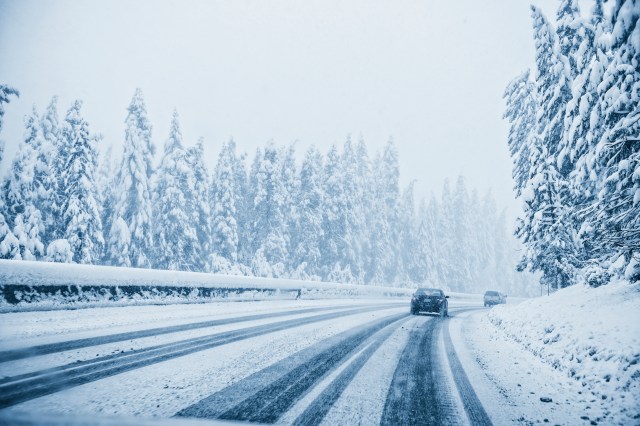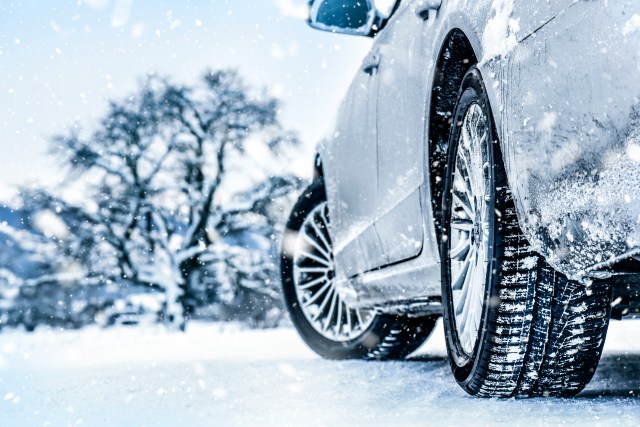It’s not always easy to drive in winter conditions, and it can seem even harder when you’re not driving your own car.
If you need to rent a car when there’s ice and snow on the ground, there are a few important tips that you should keep in mind.
Which Car Should You Choose?
One of the most important things to consider when driving in winter is what you’re driving. Depending on what the rental company has to offer, you may have a wide variety of vehicles to choose from. But which are best for driving in winter conditions?
If you’re looking for a car that can handle serious winter conditions, opt for an all-wheel drive sedan or SUV. If you’re headed somewhere with deep snow, you might want the higher ground clearance offered by an SUV.
Some SUVs have advanced all-wheel drive features that can actually improve your winter driving skills. However, not all SUVs have this feature, so check before renting.
Think about renting a car you’re familiar with. If you drive a sedan at home, perilous weather conditions might not be the best time to try out a large SUV. It’s easier to adapt to a car that’s similar to the one you drive at home, and sometimes that’s just as important as all-wheel drive. It’s also not a great time to try out driving an electric vehicle, since they have instant torque (which can be unsettling to first-time EV drivers) and limited cold weather range. If you do rent an EV, make sure to map out charging stations in advance.
And no matter what type of car you’re renting, make sure it has at least all-season tires. If the climate is particularly snowy, opt for vehicles with dedicated winter tires. Even a front-wheel drive vehicle can perform well in winter if it has four winter tires.
What Should You Bring?
If you’re traveling, you’re probably not carrying a full winter car kit with you. But you don’t want to be caught out in the snow without the necessities. If you’re going to be out in winter in a rental car, it’s a good idea to bring along a long-handled snow brush and an ice scraper, just in case. It might also be helpful to get a small, collapsible snow shovel so you can dig your car out if it gets snowed in.
Get to Know Your Vehicle
Don’t hit the road without familiarizing yourself with your rental vehicle. Take a moment at the rental lot to learn where all the important controls are. Find out how to turn on the lights, toggle the windshield wipers, the defroster, traction control, all-wheel drive operation and even the radio and GPS. You don’t want to be fiddling around with buttons and knobs while driving in the middle of an icy road.
If you’re not familiar with how some aspects of your rental car work, try them out in an empty parking lot before you start your journey.

Driving in Winter Weather
All-wheel drive is great, but it can’t change the laws of physics. Even though an all-wheel drive vehicle will get you moving better in the snow, the handling and stopping won’t change that much in comparison to a front-wheel drive vehicle. All-wheel drive might get you up the hill, but when you’re coming down the hill, all vehicles are basically toboggans. Don’t let all-wheel drive make you overconfident behind the wheel. You might feel solid and secure until you have to make an evasive maneuver, which could cause you to skid.
Skidding happens when your wheels lock, when you apply the brakes or accelerator too hard or when you hit a slippery surface while driving around a curve too fast. The most important thing to remember when your car starts skidding is that you should not panic. Continue to look at the path you want to travel, steer in the direction you want the car to go, avoid slamming on brakes and continue to steer even after your tires stop skidding.
When you’re driving on a highway, stay in the lane that has been cleared most recently, and keep your distance from the cars ahead of you. In snowy or slippery conditions, the normal following distance of three to four seconds should be increased to eight to ten seconds. Avoid changing lanes unless you absolutely have to, since you could possibly lose control of your vehicle when driving over built-up snow between lanes. Do not use cruise control when you’re driving in inclement conditions, like icy, wet or snowy roads.
Hertz has plenty of vehicle options that will get to your destination comfortably and safely. AAA members can save on rentals.















